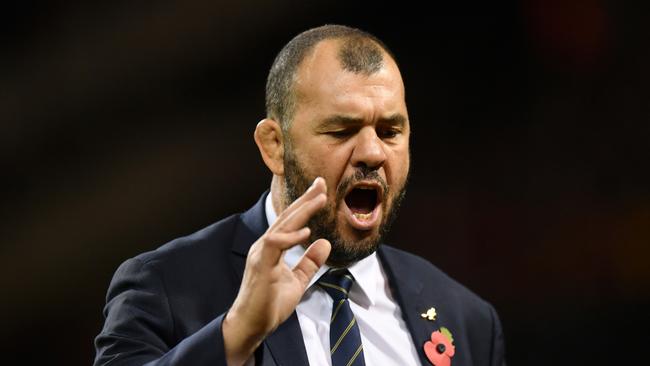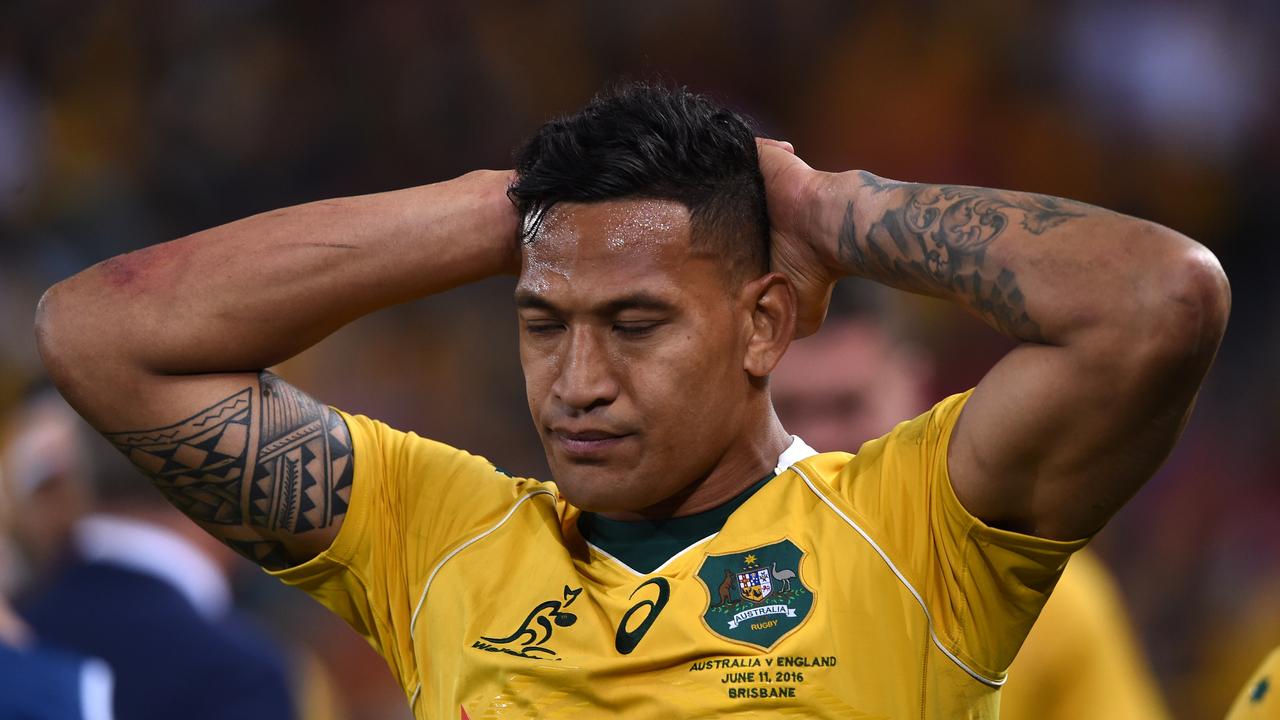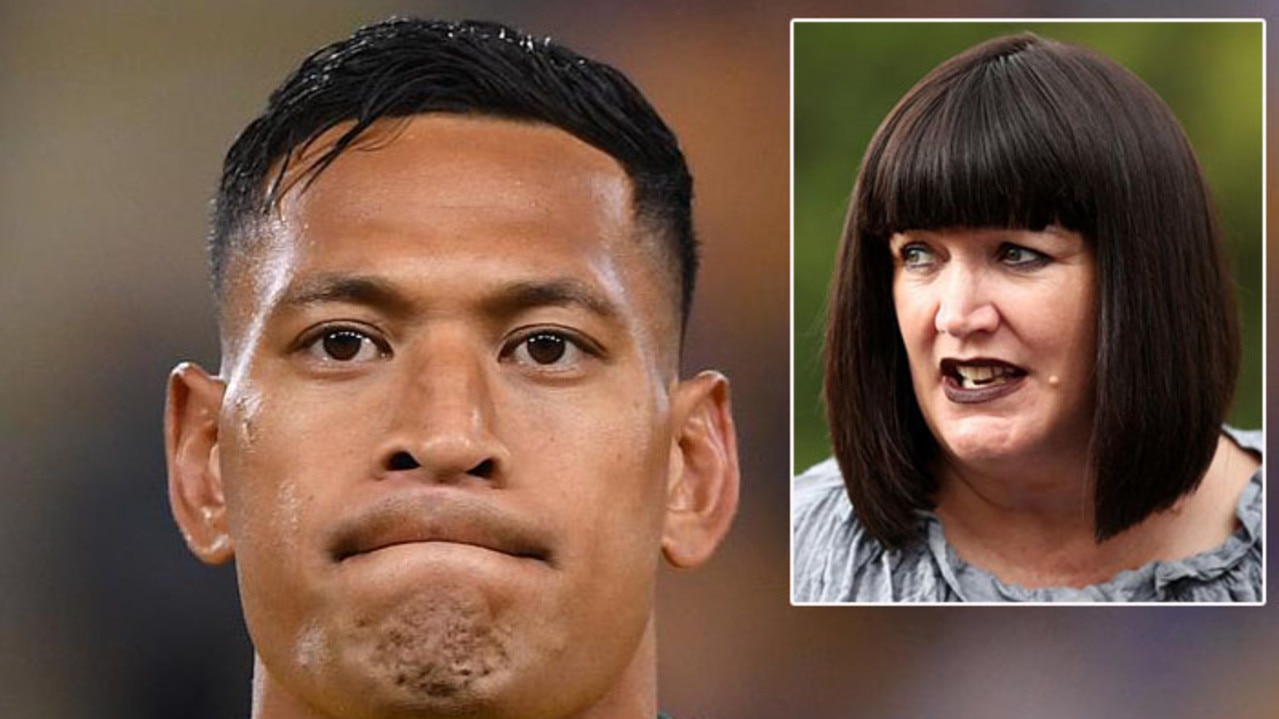Michael Cheika seemingly filling World Cup plans with snake oil
Is Michael Cheika preparing the most audacious sting’ in World Cup history?

As you watch it, you discover that:
• The Australian selectors have not met once this year. You check your phone for the date; April 7.
• The Wallabies do not have an attack coach and may not have one until next month, perhaps later. Again you check your phone, just to make sure. Yep, it’s definitely April 7.
• The attack coach, who apparently is based in Australia, won’t actually be involved in developing strategy but, rather, will “be with the players”, ensuring they have “embraced the strategy and understand it so that it becomes automatic on the field”. You reflect on that. Maybe there is some truth to the rumour he is waiting to appoint Matt Giteau or Brian Smith.
• If the Wallabies make it through to the World Cup final, Cheika intends to keep working them hard in training.
• The relationship between Cheika and director of rugby Scott Johnson appears to be working despite the fact that they have not met since Johnson arrived in the country nearly a fortnight ago. Apparently, Johnson trusts Cheika to “get things done” and Cheika trusts him to “give me an outside view and good perspective”.
All through the interview, there is a sense of something that is being held back. That’s only natural. You would hardly expect the coach of the second best-performed country in World Cup history to simply drop all his plans in a media interview. Still, Cheika kept alluding to the possibility that he was holding things back. Indeed, that the Wallabies had almost “run dead” last year.
What else was one to make of this comment? “If you want to do something different, maybe last year was not a good time to show it. Maybe you want to turn up this year with some different personnel or different things around the way we play.”
Was Cheika preparing the most audacious “sting’’ in World Cup history? The Wallabies wouldn’t have known they were running dead last year, when their record stretched to four wins out of 15, but there were plenty of ways for a wily coach to conceal that from them. All he would need to do was flog them to death in the week before a Test match. The rest would take care of itself.
Coaches are all different. Some like to spell out their plans to their close associates. Some like to keep their plans entirely to themselves, releasing only that information to the relevant people at the right time and the appropriate place. Clearly Cheika was one such coach. Indeed, if the “sting” had any chance of working, it was entirely logical he would tell no one. The down side was that he would have to live with the widespread suspicion that he didn’t really have a plan at all, that he was entirely winging it, but then it didn’t look like he considered that too heavy a burden to bear.
If the attack coach wasn’t going to be formulating any strategy, then it seemed sensible to assume that Cheika would be handling this element as well. Indeed, on reflection, not only would this keep the circle of those in the know incredibly tight — as in only one person knowing everything — but it was logical from a rugby sense as well. All head coaches should define the team’s attacking strategy. Only they would know how they envisaged multiphase attack. Only they would know how they wanted to play the game, and hence what players they would need to fulfil their vision.
Had you been Jones or Hansen, you might have wondered at this point precisely what sort of bombshells Cheika was planning. Was he planning to embrace the Melbourne Rebels style of play and opt for a flat alignment attack? Did that mean he was actually considering Quade Cooper for the five-eighth role? If so, was that the reason he didn’t once mention the most talked-about player in Australian rugby in a 15-minute chat?
Or were all the chickens now coming home to roost? In the past, Cheika had always spoken glowingly of Cooper — in the sure and certain knowledge that there was no way he would ever have to consider him while he was only playing club rugby? But now, he was not only back in the selection picture, but dominating it. He had underplayed his hand while steering the Rebels to five victories this season. Five wins in seven matches. And if he was talking about catching the world by surprise in terms of his Wallabies personnel, what would be more surprising than suddenly reverting to a player whose only World Cup experience was fully eight years ago?
Then there was the backrow picture? He had said there were “other options” besides using David Pocock and Michael Hooper in tandem. But then, there always had been and through thick and thin, Cheika had always picked them. But was this where the shock was coming from? He had mentioned Jack Dempsey and Isi Naisarani and Rob Valetini as options, though he gave the impression that Lukhan Tui — surprising that he hadn’t used his new name, Lukhan Salakaia-Loto — was shaping as his number six.
He had to be reminded of Luke Jones and Lachlan McCaffrey? What did that signify? Was it merely that there were so many options he couldn’t name them all, or just forgetful, or had he rejected them? Unlikely this last option. He had not mentioned Ned Hanigan either and it’s a fair bet that he will be in the World Cup team. But you kept coming back to Pocock and Hooper. They were such brilliant players that it would take a very determined coach not to select them both. Of course, Jones or Hansen would have considered that for a moment and decided that, as brilliant as they were individually, together they unbalanced the Wallabies backrow.
On the whole, it was a little difficult to know what to make of the Wallabies coach on that interview. Jones and Hansen would have switched off thinking that they had the Australians pretty well covered.
Yet they would have been a tad uneasy. The art of being a great coach — and, curiously, the art of being a snake-oil salesman — is the ability to dangle before people what they desperately want to see. And Cheika certainly knew how to do that.



Imagine you are Eddie Jones or Steve Hansen. It’s 167 days to the start of the Rugby World Cup and, having nothing better to do with your Saturday afternoon, you indulge in some channel-surfing and happen to stumble upon Michael Cheika’s interview with the Fox Sports rugby panel.